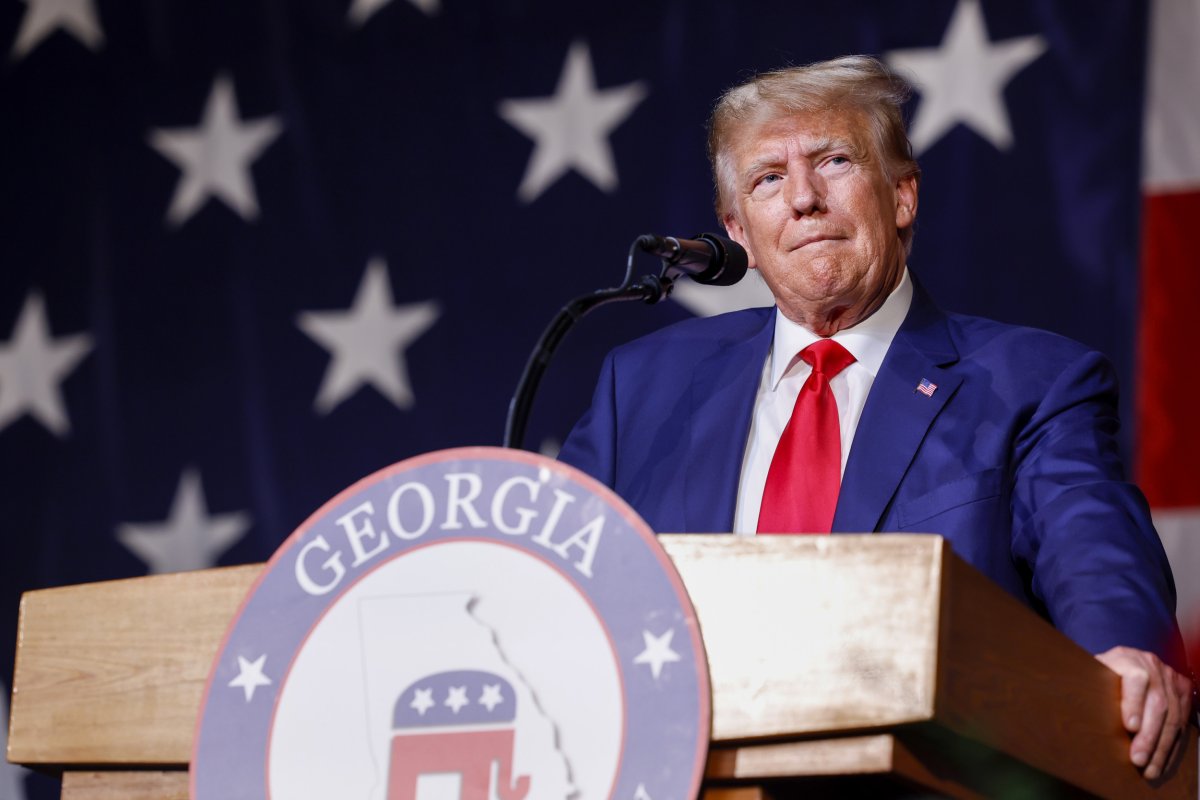Donald Trump would serve a minimum jail term of five years if found guilty under Georgia's Racketeer Influenced and Corrupt Organizations (RICO) Act as part of Fulton County District Attorney Fani Willis' election interference investigation, a legal expert has said.
Elie Honig, a former federal prosecutor and CNN's legal analyst, was discussing how the former president and many of his allies may soon face criminal charges as part of Willis' expansive 2020 election interference probe.
There has long been speculation that Willis will use the state's RICO charges in her case, a statute commonly used in organized crime cases that allows prosecutors to charge multiple people with separate offenses while working towards a common goal.
It is believed that Willis will present evidence to a grand jury and ask them to bring forward an indictment in her investigation of Trump and others by Tuesday, August 15, reported The New York Times and The Guardian. Trump has long denied any wrongdoing in connection to Willis' probe, and accused it of being a politically motivated "witch hunt."

Speaking on CNN, Honig explained that Georgia's RICO Act is broader in its definition than the federal RICO Act, and can be geared toward any "enterprise." Georgia's RICO Act also includes a minimum jail term for those found guilty and handed a custodial sentence.
"One huge difference though, under Georgia State law, if somebody's convicted of RICO, there is a five-year mandatory minimum," Honig said. "Have to do five years, even the federal law doesn't have that." Trump's office has been contacted for comment via email.
Honig said that RICO charges could be used in the case against Trump if Willis' office can convince a grand jury that numerous people were working together as part of an illegal plot to keep Trump in power after losing the 2020 election.
Willis' office originally focused on investigating if Trump committed a crime during his January 2021 phone call with Georgia Secretary of State Brad Raffensperger in which the former president allegedly asked him to "find" the 11,780 votes needed to beat Joe Biden in Georgia.
The probe has since widened significantly: it is looking into allegations that Trump and several other members of his inner circle plotted to send a group of fake electors to falsely claim that Trump had won the state in 2020, as well as claims of intimidation of election workers and alleged attempts to access voting machine data.
"Generally speaking, under RICO laws, as a prosecutor, you have to show two things," Honig said.
"First of all, the existence of what we call a 'racketeering enterprise' meaning a group—doesn't have to have an official name—but a group that gets together in order to do the second thing, which is commit a pattern of racketeering, which means two or more crimes for some sort of common purpose.
"So we'll see if prosecutors are able to fit Donald Trump and his organization into that legal definition," Honig said. "Your group does not have to have a formal name or initiation. Sometimes groups do, they're called such and such gang or the such and such organization, but it also can be a group that is an informal association, just people working together for a common purpose."
It is unclear exactly who may also face charges alongside Trump if an indictment against the former president arrives.
Previously, a special grand jury that spent months hearing evidence and witnesses' testimonies as part of Willis' probe suggested that it would recommend that charges be brought forward for several people in the investigation, without naming individuals.
In May, it was reported that eight of the 16 people who were under investigation over an alleged fake electoral plot in Georgia have been granted immunity.
A group of 16 Republicans met at Georgia's state capitol on December 14, 2020, to sign a certificate declaring that Trump had won the state's election, even though it was Biden, while falsely declaring themselves the state's "duly elected and qualified" electors.
Uncommon Knowledge
Newsweek is committed to challenging conventional wisdom and finding connections in the search for common ground.
Newsweek is committed to challenging conventional wisdom and finding connections in the search for common ground.
About the writer
Ewan Palmer is a Newsweek News Reporter based in London, U.K. His focus is reporting on US politics, domestic policy ... Read more
To read how Newsweek uses AI as a newsroom tool, Click here.






